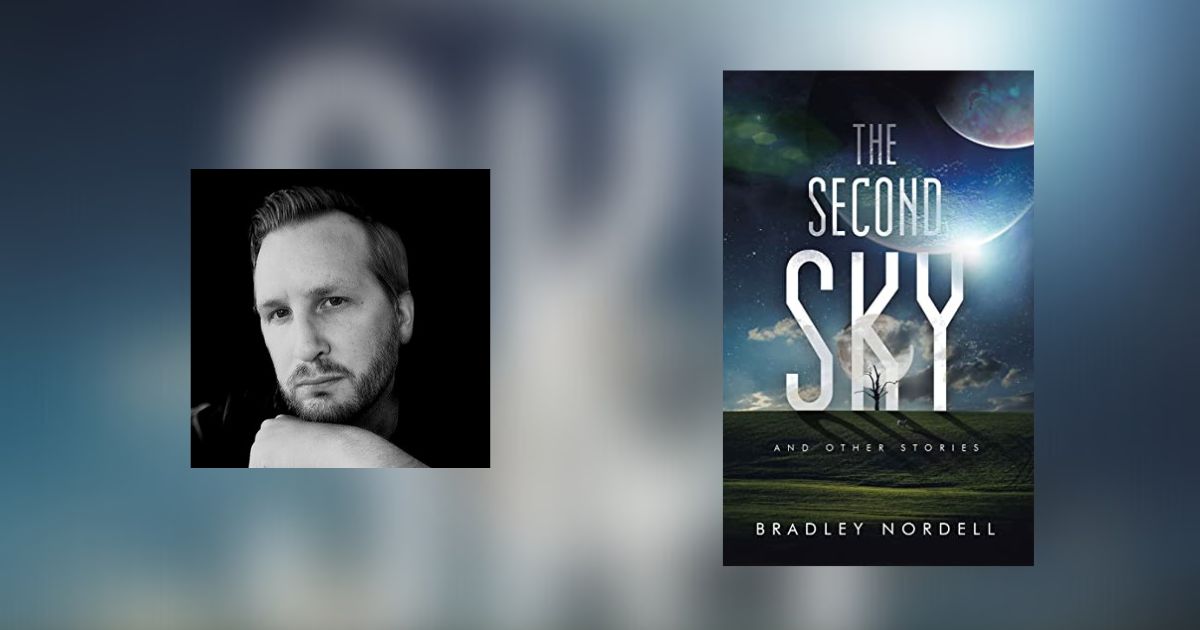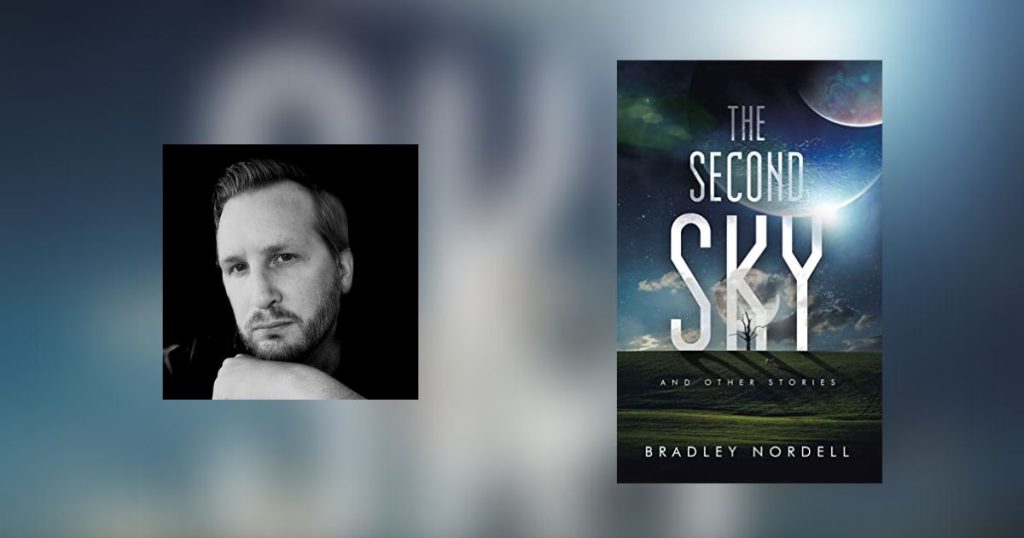
What’s the story behind the story? What inspired you to write The Second Sky: And Other Stories?
Okay, first the story behind the title. The title came from my friend Melinda’s daughter, who looked at the sky and said to her mom “that’s the Second Sky.” Mel told me, and I was like “that’s a heck of an insight.” And I kept thinking, what if she’s right? What if there is a hidden sky that we all look past. And that’s when the idea came to create a collection of stories about different hidden aspects of reality.
I grew up with Twilight Zone and Martian Chronicles and Philip K Dick stories, which are all about the strangeness of the world, the dimensions of other realities. The Second Sky is an ode to those with my own twist and philosophical insights. As a quantum physicist, I explore these strange but real aspects of parts of reality we don’t “see” or “experience” directly, but that are there. And so each story is a part of reality hidden to us. Parts that are opened through new technology or even love or grief. Only then, do we finally see The Second Sky.
So, from that, most of these stories started as “what if…” and they grew from there. For instance, “To Build a Hope,” started as “what if you woke up after a storm and reality was being consumed by nothingness?” But at the heart of every story is the human aspect, whether it be love, death, loss, loneliness, or hope, the futuristic stuff is to transport the readers to new worlds, new when’s and where’s, but the human aspect is always present.
If you had to pick theme songs for the main characters of The Second Sky: And Other Stories, what would they be?
Since there are many stories (and hence characters) here, it would be a playlist that included: – Stars of the Lid – Zoe Keating – Olafur Arnolds – Explosions in the Sky – Clint Mansell – Miles Davis – Kind of Blue.
What’s your favorite genre to read? Is it the same as your favorite genre to write?
I read science fiction and literary fiction, horror, memoirs, poetry, speculative fiction, well, I read mostly everything. I write science fiction, literary fiction, and poetry.
I like to think of my style as literary sci-fi, where I put a lot of emphasis on character development, mixed with beautiful prose, and vivid world-building. As if James Joyce, Stephen King, and Isaac Asimov morphed into a single writer.
What books are on your TBR pile right now?
Well, I usually read 6-7 books at once; something I’ve done since I was a kid. These will be different genres. So right now, I’m reading: – Angela’s Ashes by Frank McCourt – Viper Rum by Mary Karr – And Hell Followed with Them by Giovanni Diaz – The Helios Syndrome by Vivian Shaw – Shards of Earth by Adrian Tchaikovsky – The Geometry of Kerr Black Holes by Barrett O’Neil – The Ferryman by Justin Cronin.
What scene in your book was your favorite to write?
The two that were difficult or well, powerful, were: – The entire story of The Reaper Men was based off a dream I had. I had the dream two-months before the COVID Pandemic. I woke up, wrote the story out, and was like “shit, that felt so real.” Well, two months later the world is in a pandemic. I was worried the Reaper Men might come true.
– And the story “The Color of a Rose,” where the protagonist is blind. So, while writing I actually spent long periods of time blindfolded so I can begin to think, describe scenes, use metaphors and similes that had nothing to do with the visual senses. It was difficult but I felt it turned me into a better writer and helped to expand my imagination of seeing reality through a difference perspective.
Do you have any quirky writing habits? (lucky mugs, cats on laps, etc.)
I go on long walks and play out the character conversations and scenes I’m writing, almost like I’m on a movie set. People who pass me by probably think I’m talking to myself. I also like to sit in a dark room and play out the story or scene in my mind. I usually have Miles Davis or Pink Floyd playing in the background.
Do you have a motto, quote, or philosophy you live by?
“Your only limitation is the idea you are limited”, “do no harm,” and “always listen and act with loving-kindness.”
I like to think of myself as an eastern humanistic existentialist. I’m a quantum physicist, so I believe in the transcendental power of science in helping the world and building a better tomorrow. But we also need love, kindness, and a worldview of interconnectedness and well, social responsibility. Hence, the eastern part describing the philosophy of Buddhism of “do no harm,” and that we all interconnected.
In fact, we are a sum of all things, just at this time my wavefunction is a human, but at different times I was a star, or in the future I’ll be part of a tree, a flower, a frog, this chair. Conservation of matter and energy say that all our matter and energy is not destroyed but only transforms from one form to another. And existentialism aspect is that all life is meaningless, in the absolute sense.
We create meaning. We do this through beauty, and art, and family. We also create the world, the human world we experience. And so, it is our social responsibility when it isn’t working, to work together to help make a better one. I believe fiction can help with that. To read is to become another mind, another story, to feel with characters. And with science fiction, we are weaving together possible worlds and tomorrows to build on or not (hence dystopias). The idea of playing out many scenarios and eventually making a better tomorrow together.
If you could choose one thing for readers to remember after reading your book, what would it be?
There is a deeper reality than the one you perceive. And the doorways to those realities can come in many ways, whether it be the powerful experience of love or even death, but you must keep searching, keep hoping, keeping looking up to the Second Sky.
Sign up for our email and we’ll send you the best new books in your favorite genres weekly.

